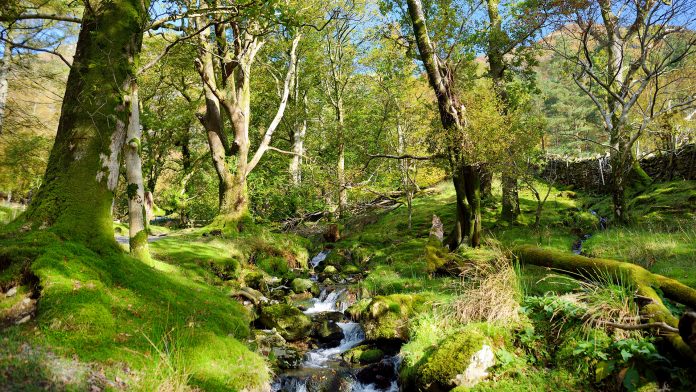A team of experts from across Europe has produced a list of 15 overlooked and emerging issues that are likely to have a significant impact on UK forests over the next 50 years if action is not taken now.
Current threats to UK forests include competition with society for water, viral diseases, and extreme weather affecting forest management.
This is the first ‘horizon scanning’ exercise – a technique to identify relatively unknown threats, opportunities, and new trends in these forests.
The aim is to help researchers, practitioners, policymakers, and society in general, better prepare for the future and address threats before they become critical.
Dr Eleanor Tew, first author, visiting researcher at Cambridge’s Department of Zoology, and Head of Forest Planning at Forestry England, said: “The next 50 years will bring huge changes to our forests: the threats they face, the way that we manage them, and the benefits they deliver to society.”
The study, ‘A horizon scan of issues affecting UK forest management within 50 years,’ was published in the journal Forestry.
What issues are likely to have the biggest impact on UK forests?
A panel of 42 experts, who represented a range of professions, organisations, and geographies, reached out to their networks to seek over-looked and emerging issues that were likely to affect UK forests over the next half a century.
The resulting 180-item longlist was then whittled down through a series of review exercises to a shortlist of 30 issues.
In a final workshop, panellists identified the top 15 issues they believed would have the greatest impact on UK forests in the next 50 years.
The experts noted that ‘catastrophic forest ecosystem collapse’ was the most highly ranked issue, with 64% of experts ranking it as their top issue and 88% ranking it within their top three.

Tew said: “We hope the results from this horizon scanning exercise serve as an urgent call to action to build on, and dramatically upscale, action to increase forest resilience.”
Another issue identified was that droughts caused by climate change may lead to competition for water resources between forests and society. On the other hand, forests may help to mitigate the impact of floods caused by climate change.
A further issue was the effect of climate change on forest management, with extreme weather leading to smaller windows of time when forestry can be carried out.
Experts have warned that the seasons for carrying out work such as harvesting and thinning are getting narrower as we see wetter winters and scorching summers.
We must act now to save our forests
However, not all emerging issues with UK forests are threats – some are new opportunities. For example, trees will be at the heart of future urban planning.
The experts predicted that ‘forest lungs’ will be created thanks to an increased understanding of the benefits of trees for society.
International commitments around nature are also likely to have repercussions at the local level. For example, the mandatory reporting of companies’ supply chain impacts on nature, such as through the new framework being developed by the Taskforce on Nature-related Financial Disclosures (TNFD), could create additional incentives for nature-friendly UK forest management.
Tew concluded: “These results are both concerning and exciting. However, we should be optimistic, remembering that these are possibilities and not certainties.
“Crucially, we have time to act by responding to the threats and embracing the opportunities. Future generations can have resilient forests with all the benefits they offer.”





